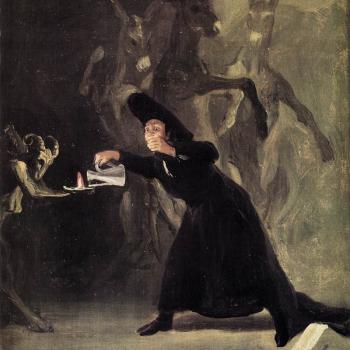I have yet to see an Orthodox friend discuss this. I don’t blame them. It’s traumatic. You have the head of the most populace Orthodox Church breaking communion with individual bishops, including two of the most important in the Orthodox communion. This is worrying. It seems irresolvable. It’s enough to squelch hope if confronted directly. Metropolitan Hilarion, spokesman for the Russian Church, has said as much:
I should say that the rupture with Constantinople has not affected in any way the internal life of the Russian Orthodox Church, including its self-governed part – the Ukrainian Orthodox Church, we continue living as we used to live, we continue serving as we used to serve, we continue celebrating as we used to celebrate Pascha and other great feasts. We have not felt any damage done by this rapture.
The Patriarchate of Constantinople has made a great mistake, and it continues insisting on this mistake, demanding that other Local Churches should recognize the so-called ‘Orthodox Church of Ukraine’ as well. However, we can see that the OCU has not succeeded as a Church. From the very beginning, it was made up of two schismatic groups; within only a few months of its existence, it has had time to divide into two parts, and the church people have not followed this group. Patriarch Bartholomew assumed that the episcopate of the canonical Ukrainian Orthodox Church would join this group as soon as it received a tomos of autocephaly. The tomos was received but the episcopate remained rallied around His Beatitude Metropolitan Onufriy; the hierarchs of the Ukrainian Church have stated their desire to preserve unity with the Russian Orthodox Church and their full satisfaction with the present status of the Church. It is quite clear that the schism has not been overcome; on the contrary, there is a deepening division. (Russian Orthodox Church Department for External Church Relations)
Things are getting worse, not better. What to make of this? How to take all this idle talk and obstinate action?
Regarding these questions, I find myself thinking about my friend Nathan Smolin’s wonderful essay on the Schism of 1054. One fact shines through in his study: people are sinful and they will find about any conceivable reason to grandstand, to fight. Rarely are actual theological problems the cause of schism, though these may be invoked. More often do we find pride at the heart of these matters; we discover that any number of arguments may be shuffled about to disguise the solitary reality that human beings relish in using their limited time on this earth to lash out, to denigrate, to laud, and to damn.
I do not mean to seem reductive. Bad faith is not ubiquitous. All men are not liars. But the fact remains that each of us (myself included) carries his prejudices with him as he walks the road of life. Rigorous self-examination is hard. Harder still is escape from the trap of self-delusion. And so, even the best intentions become excuses for vitriol and viciousness. The best laid schemes o’ mice n’ men gang aft agley.
Each of us bears the terrible truth that our life is finite, that death waits, peaking through at this moment and that, ready to strike who knows when. Time is short and glory seems far off. The life of humble labor is difficult, still more the life of humility in the face of grand historical forces. And so, we stand up; and so, we take sides. The eschaton is here and now—the right must be proven right and the wrong must be proven wrong. Quiet contemplation and prayerful self-accusation have no place when there are ecclesial wars to be won.













